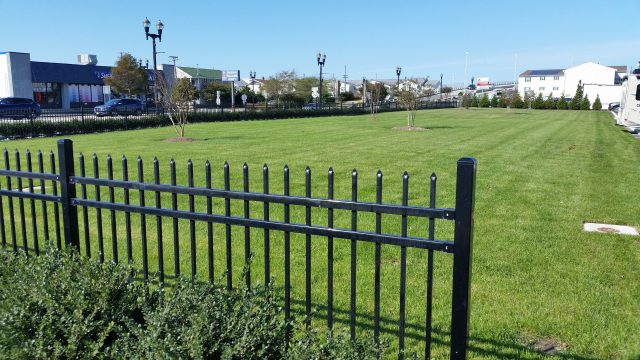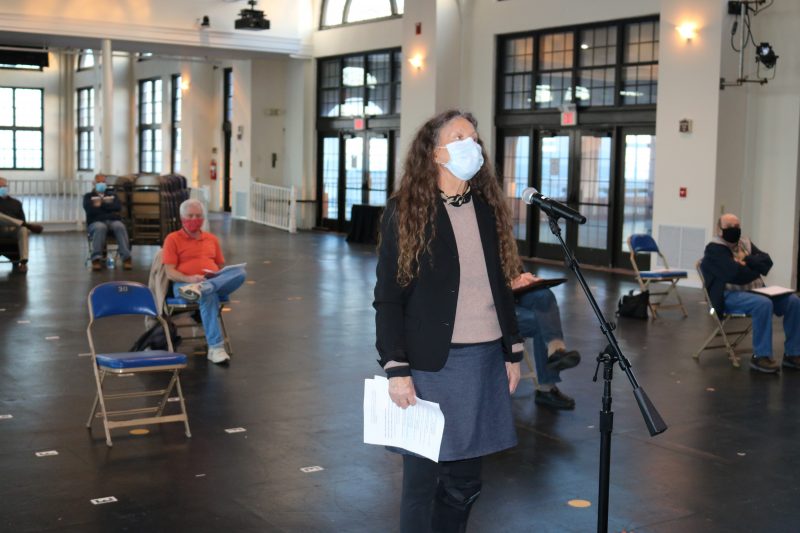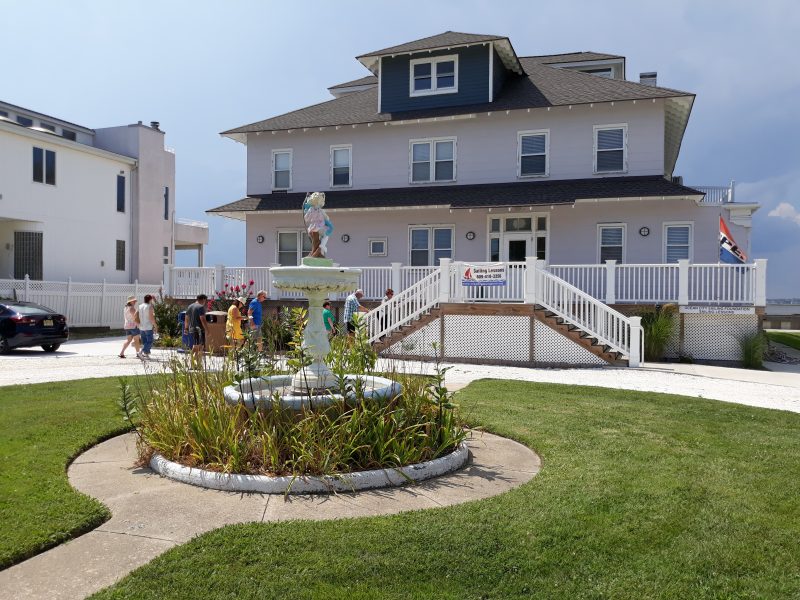
By DONALD WITTKOWSKI
Ocean City is taking an eco-friendly approach for the landscaping of parks, recreation sites, gardens and other plots of public land scattered across town.
Under a new $192,480 landscaping contract awarded by City Council on Thursday night to A. Guzzo Landscaping LLC of Turnersville, N.J., the city is switching to organic landscaping methods in place of chemical pesticides.
In all, the pesticide-free landscaping program will cover 61 public sites, including popular areas such as the grounds at City Hall, the dog park on 45th Street, the wildlife sanctuary on 25th Street and the Bayside Center on Fifth Street.
The city had been using the lawns of the Bayside Center as a test area for organic landscaping before it made the decision to go pesticide-free on all other public grounds.
Ocean City operates the three-story Bayside Center at 520 Bay Avenue as a combination museum, community center and nature center through a long-term lease with Cape May County, the building’s owner. It is a popular tourist attraction that features sprawling green grounds and a bayside marina.
Mayor Jay Gillian told members of his administration last year that he wanted municipal property to be pesticide-free starting in 2021, but first the city studied the cost and intricacies of the plan.
In an interview last November, Gillian said he believed that the city’s decision to switch to environmentally friendly landscaping techniques was “the right thing to do.”
“I’m all about public safety,” he said then. “We have to study it and make sure we do it the right way. But anything you can do to help the environment is a good thing.”
City officials said the change is in response to suggestions from local environmental advocate Donna Moore and other residents for the city to switch to eco-friendly organic measures to take care of the grass, shrubbery and flowers on public property.
Moore, who has been appealing to city officials for years for pesticide-free landscaping, noted during Thursday night’s Council meeting that it was a “long time coming.”
“Thank you so much,” she told city officials of the new landscaping contract. “The residents are so grateful for healthy public lands here.”

In previous meetings, the Council members thanked Moore for her efforts to educate them and local residents on the dangers of landscaping chemicals.
Moore has often appeared at Council meetings holding handwritten signs that dramatize her warnings about pesticides. She has spoken extensively to the governing body about the potential health hazards to humans, animals and marine life from pesticides and fertilizers containing toxic chemicals.
Largely based on Moore’s persistence, the city set aside eight public sites around town last year as a broader test for organic landscaping techniques. Those test sites served as a prelude for the city’s switch to pesticide-free measures at all 61 sites starting this year.
The sites include 21 locations in the north end of town, 11 in the midtown area and 29 in the south-central part.
“The contract now includes exclusive use of organic turf treatment products on all of the 61 properties,” Steven Longo, a city manager, wrote in a March 26 memo attached to the City Council meeting agenda.
Longo explained that the “working definition” of an organic landscaping program is a lawn managed without synthetic fertilizers or pesticides.
“Organic fertilizers are substances that originate from the remains or byproducts of natural organisms that contain the essential nutrients for plant growth. Organic fertilizers are beneficial to the environment, provide slow and consistent nutrient release and provide controlled growth,” he wrote in the memo.
Longo added that there are some disadvantages with organic landscaping, including a higher cost, limited availability and a slower release of nutrients.
“The growing health awareness among consumers is driving the demand for organic products and as the consumers consider organic products as safe and healthy, there has been a significant increase in the organic product use across the world and thus the city’s decision to implement organic management practices locally,” Longo wrote.







